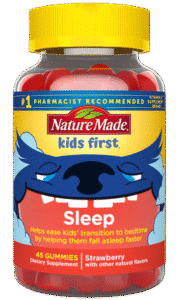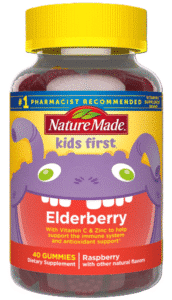Raising a healthy child in today’s fast-paced world is not always simple. Between busy school schedules, after-school activities, and picky eating habits, many parents wonder if their children get all the essential nutrients. That is why the topic of vitamins and supplements for kids has become so important.
As a mother of a seven-year-old daughter, I often ask myself: does her daily diet give her everything she needs for growth, focus, and strong immunity? I try to prepare balanced meals, but I also recognize that life is messy. Some days are filled with fresh vegetables and home-cooked meals. Other days, dinner looks more like pasta and fruit snacks. That is why I started researching supplements, not as a replacement for food, but as a safety net when nutrition falls short.

Why Kids May Need Extra Support
In theory, a balanced diet covers all nutritional needs. In reality, children often miss important nutrients for several reasons:
- Picky eating habits
- Lack of exposure to certain food groups
- Busy lifestyles leading to convenience meals
- Medical conditions that affect absorption
- Limited outdoor time, which lowers natural Vitamin D levels
According to the Centers for Disease Control and Prevention, about one-third of children and adolescents in the U.S. take dietary supplements. The American Academy of Pediatrics (AAP) states that healthy children eating well-balanced diets usually do not need extra vitamins. However, in cases of poor diet, restricted diets, or health issues, supplements can make a difference.
Essential Vitamins and Minerals for Children
Vitamin D
Vitamin D is vital for bone health, strong teeth, and a resilient immune system. Children who spend little time outdoors or wear sunscreen daily often do not get enough. Research suggests that one in ten children may be deficient, which can affect growth, energy, and immune response.
Because of this, Vitamin D is one of the most important nutrients often discussed when parents consider vitamins and supplements for kids. While sunlight is a natural source, modern lifestyles mean that many children need extra help. This is especially true during the winter months, in colder climates, or for children with darker skin tones who naturally produce less Vitamin D from sun exposure.
Food sources: fatty fish, eggs, fortified milk, mushrooms.
Daily need: 400 IU for infants, 600 IU for children and teens.
Adding a safe Vitamin D supplement can be a simple way to ensure your child receives consistent support for bones, immunity, and overall health.
Iron
Iron supports brain development, muscle growth, and energy levels. Without enough iron, children may feel tired, irritable, or have trouble concentrating.
Food sources: lean meat, beans, lentils, spinach, fortified cereals.
Daily need: 7–10 mg for young kids, up to 15 mg for teen girls.
Fiber
Fiber is not a vitamin, but it is essential. It keeps digestion smooth and supports a healthy gut microbiome. Most children get less fiber than recommended.
Food sources: whole grains, apples, carrots, beans, leafy greens.
Daily need: 14–25 g depending on age.
Vitamin C
This powerful antioxidant strengthens immunity, helps heal wounds, and supports healthy skin. Kids often get Vitamin C fro
m fruits, but not always in the right amount.
Food sources: oranges, strawberries, kiwi, peppers, broccoli.
Featured Supplements Worth Considering
1. Nature Made’s Kids First® Sleep Gummies
Sleep is one of the most important factors for a child’s health, yet many parents know the struggle of bedtime routines. These gummies provide a gentle, drug-free way to help children relax and fall asleep more easily.
- 1 mg of Melatonin per gummy
- Helps ease the transition to bedtime and supports falling asleep faster†
- Delicious strawberry flavor with other natural flavors
- For children ages 4–18
- One gummy per serving
- 100% drug-free and sourced from high-quality ingredients
Melatonin is a hormone naturally produced in the body to regulate sleep and wake cycles. However, modern life, busy school schedules, and increased screen time can interfere with a child’s ability to wind down. A safe and low-dose supplement like this can support occasional sleep difficulties without creating dependency.
As a mother, I see how evenings can sometimes be a challenge, especially after busy days filled with schoolwork and activities. Having an option that makes bedtime smoother not only benefits my daughter but also helps the entire household feel calmer.
 2. Kids First® Elderberry Gummies with Vitamin C and Zinc
2. Kids First® Elderberry Gummies with Vitamin C and Zinc
Immune health is a top priority for most parents, and these gummies offer a simple way to strengthen your child’s natural defenses. They combine three key ingredients in one tasty formula:
- Vitamin C — a powerful antioxidant†
- Zinc — essential for immune system support†
- Elderberry — rich in anthocyanins with antioxidant properties
These gummies are designed for children ages 4–18 and come in a delicious raspberry flavor that kids actually enjoy. Unlike pills or syrups, they feel like a treat, which makes consistency easier.
Vitamin C and Zinc are both essential nutrients that may not always be present in the right amounts in a child’s daily diet. Adding them in gummy form ensures steady support for immunity, especially during colder months or when children are exposed to many germs at school. Elderberries add an extra boost, since they have been used traditionally for wellness and are packed with antioxidants.
In my own experience, having a reliable immune-support supplement gives me peace of mind. I cannot always control what my daughter eats during a busy school day, but I can make sure she gets the nutrients that strengthen her body’s defenses.
My Personal Experience as a Parent
As a mother, I have always believed food should be the foundation of health. My daughter eats eggs, fish, fruits, and vegetables most days. Still, I sometimes notice her energy dips or she gets frequent colds during winter. That made me rethink my approach.
I do not see supplements as a substitute for good nutrition. Instead, I see them as insurance. On days when she eats poorly or when seasonal illnesses are everywhere, supplements give me peace of mind. For example, when she refused most vegetables at age five, I started offering a fiber gummy. It was a small step that made digestion easier and meals less stressful.
Of course, I always check with her pediatrician before adding anything new. Every child has unique needs, and professional advice is essential.
Choosing the Right Supplements for Kids
Not all products are created equal. Parents should keep a few rules in mind:
- Age-appropriate formulas: Dosages differ for toddlers, school-aged kids, and teens.
- Third-party tested brands: Look for trusted, high-quality ingredients.
- Avoid unnecessary additives: Choose gummies with natural flavors, minimal sugar, and no artificial dyes.
- Check labels carefully: Some products combine multiple vitamins, while others target just one area like digestion or immunity.
When Supplements May Be Especially Helpful
- Children with limited diets (vegan, dairy-free, gluten-free)
- Kids with medical conditions that affect absorption
- Children who do not spend enough time outdoors (Vitamin D risk)
- Picky eaters who avoid whole food groups
- Kids with frequent illnesses or low energy
Supplements are not for every child, but in these cases, they can bridge important gaps.

The Bigger Picture: Lifestyle Matters Too
Vitamins and supplements for kids can be valuable, but they are only one piece of the health puzzle. Children thrive when several lifestyle factors come together in harmony.
Balanced Diet
Food remains the most powerful source of nutrition. Fresh fruits, colorful vegetables, lean proteins, and whole grains provide a variety of vitamins and minerals that no single supplement can match. Encouraging children to try new foods and involving them in cooking can make healthy eating more enjoyable. For example, letting your child choose vegetables at the market or help mix a smoothie often makes them more eager to taste it.
Sleep and Rest
Quality sleep is just as important as diet. Children who do not get enough rest often feel irritable, have lower focus, and may even experience weakened immunity. Experts recommend 9–12 hours of sleep for school-aged kids. Establishing a calming bedtime routine—such as reading together or turning off screens an hour before bed—can help achieve this.
Outdoor Play and Movement
Exercise is not only about strong muscles. Active play outdoors boosts Vitamin D levels, improves mood, and helps regulate energy. Running, biking, or simply playing tag with friends keeps children physically and emotionally balanced.
Limiting Sugar and Processed Foods
Reducing sugary drinks and processed snacks is another key step. Too much sugar can lead to mood swings, energy crashes, and even nutrient deficiencies. Offering fruit, nuts, or yogurt as alternatives supports steady energy and better long-term health.
When these lifestyle elements are in place, supplements work more effectively. They become a support system rather than the main solution, helping children grow strong, focused, and resilient.
Conclusion
Parenting means making daily decisions about health and well-being. Nutrition is one of the most important. While whole foods should always come first, supplements can fill unavoidable gaps. As I discovered with my daughter, even the healthiest meals sometimes need a little help.
Vitamins and supplements for kids offer parents peace of mind, especially in today’s busy world. Options like immune-support gummies or prebiotic fiber make it easier to strengthen your child’s immune system and digestion.
In the end, what matters most is balance. Food, sleep, play, and smart supplementation all contribute to raising resilient, healthy children ready to thrive.
Kakadu Plum and Vitamin C: The Ultimate Natural Boost for Glowing Skin
The Secret to a Cleaner Home Without Effort: Modern Robot Assistants

I’m Victoria, the creator behind Eva My Balance. Passionate about beauty, wellness, sustainable living, and mindful self-care. My mission is to inspire you to live consciously and beautifully—inside and out.



